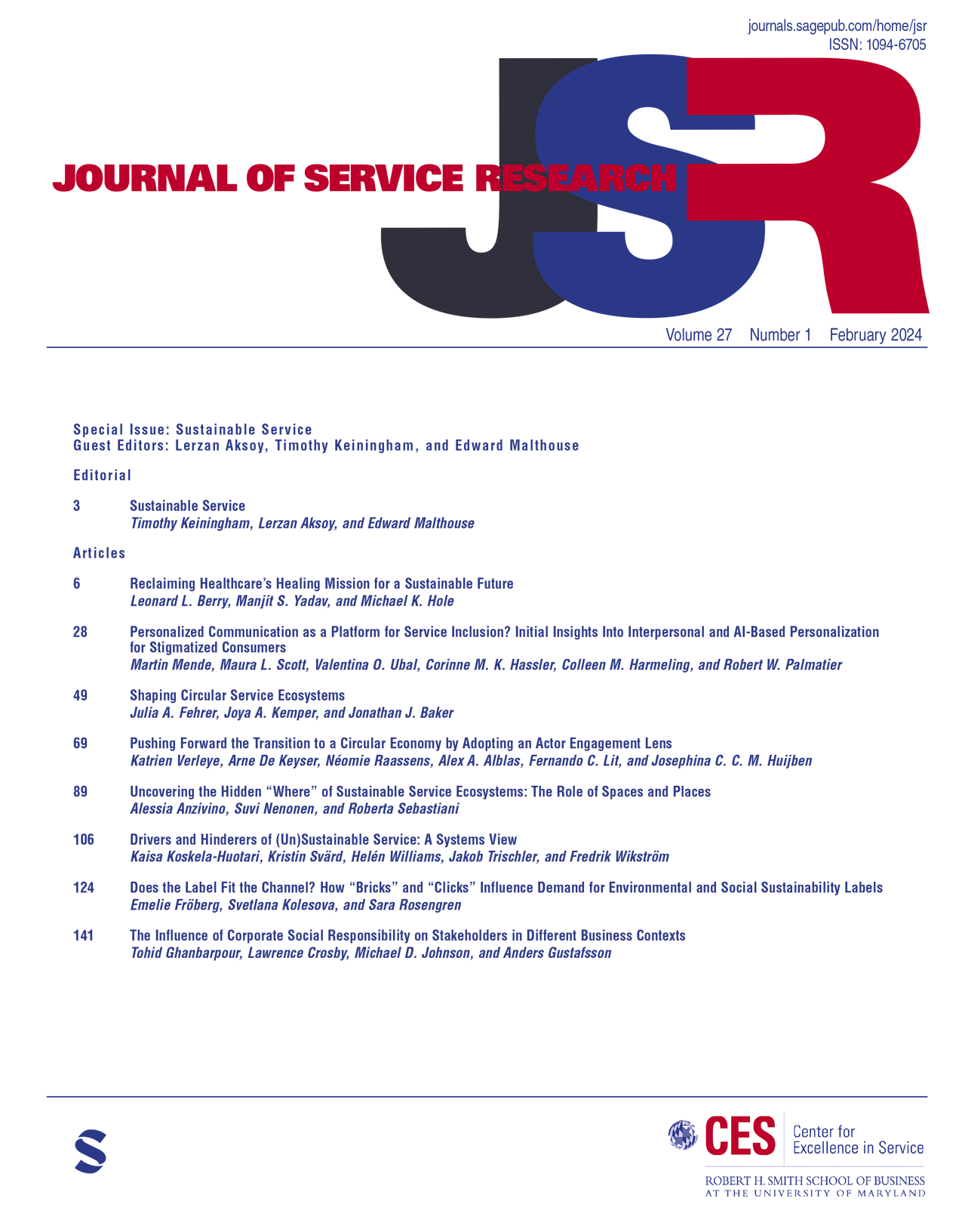Corporate Digital Responsibility in Service Firms and Their Ecosystems
IF 8.6
2区 管理学
Q1 BUSINESS
引用次数: 28
Abstract
Digitization, artificial intelligence, and service robots carry serious ethical, privacy, and fairness risks. Using the lens of corporate digital responsibility (CDR), we examine these risks and their mitigation in service firms and make five contributions. First, we show that CDR is critical in service contexts because of the vast streams of customer data involved and digital service technology’s omnipresence, opacity, and complexity. Second, we synthesize the ethics, privacy, and fairness literature using the CDR data and technology life-cycle perspective to understand better the nature of these risks in a service context. Third, to provide insights on the origins of these risks, we examine the digital service ecosystem and the related flows of money, service, data, insights, and technologies. Fourth, we deduct that the underlying causes of CDR issues are trade-offs between good CDR practices and organizational objectives (e.g., profit opportunities versus CDR risks) and introduce the CDR calculus to capture this. We also conclude that regulation will need to step in when a firm’s CDR calculus becomes so negative that good CDR is unlikely. Finally, we advance a set of strategies, tools, and practices service firms can use to manage these trade-offs and build a strong CDR culture. Graphical Abstract服务企业及其生态系统中的企业数字责任
数字化、人工智能和服务机器人带来了严重的道德、隐私和公平风险。利用企业数字责任(CDR)的视角,我们研究了服务公司的这些风险及其缓解措施,并做出了五项贡献。首先,我们表明CDR在服务环境中至关重要,因为涉及大量客户数据流,以及数字服务技术的无所不在、不透明和复杂性。其次,我们使用CDR数据和技术生命周期视角综合了伦理、隐私和公平文献,以更好地理解服务环境中这些风险的本质。第三,为了深入了解这些风险的来源,我们研究了数字服务生态系统以及相关的资金、服务、数据、见解和技术流动。第四,我们推断出CDR问题的潜在原因是良好的CDR实践和组织目标(例如,利润机会与CDR风险)之间的权衡,并引入CDR演算来捕捉这一点。我们还得出结论,当一家公司的CDR计算变得如此负面,以至于良好的CDR不太可能出现时,监管就需要介入。最后,我们提出了一套策略、工具和实践,服务公司可以使用这些策略、工具和实践来管理这些权衡,并建立强大的CDR文化。图形抽象
本文章由计算机程序翻译,如有差异,请以英文原文为准。
求助全文
约1分钟内获得全文
求助全文
来源期刊

Journal of Service Research
BUSINESS-
CiteScore
20.30
自引率
6.50%
发文量
28
期刊介绍:
The Journal of Service Research (JSR) is recognized as the foremost service research journal globally. It is an indispensable resource for staying updated on the latest advancements in service research. With its accessible and applicable approach, JSR equips readers with the essential knowledge and strategies needed to navigate an increasingly service-oriented economy. Brimming with contributions from esteemed service professionals and scholars, JSR presents a wealth of articles that offer invaluable insights from academia and industry alike.
 求助内容:
求助内容: 应助结果提醒方式:
应助结果提醒方式:


